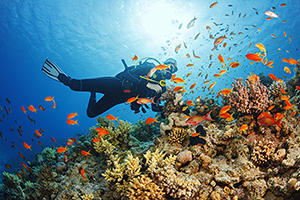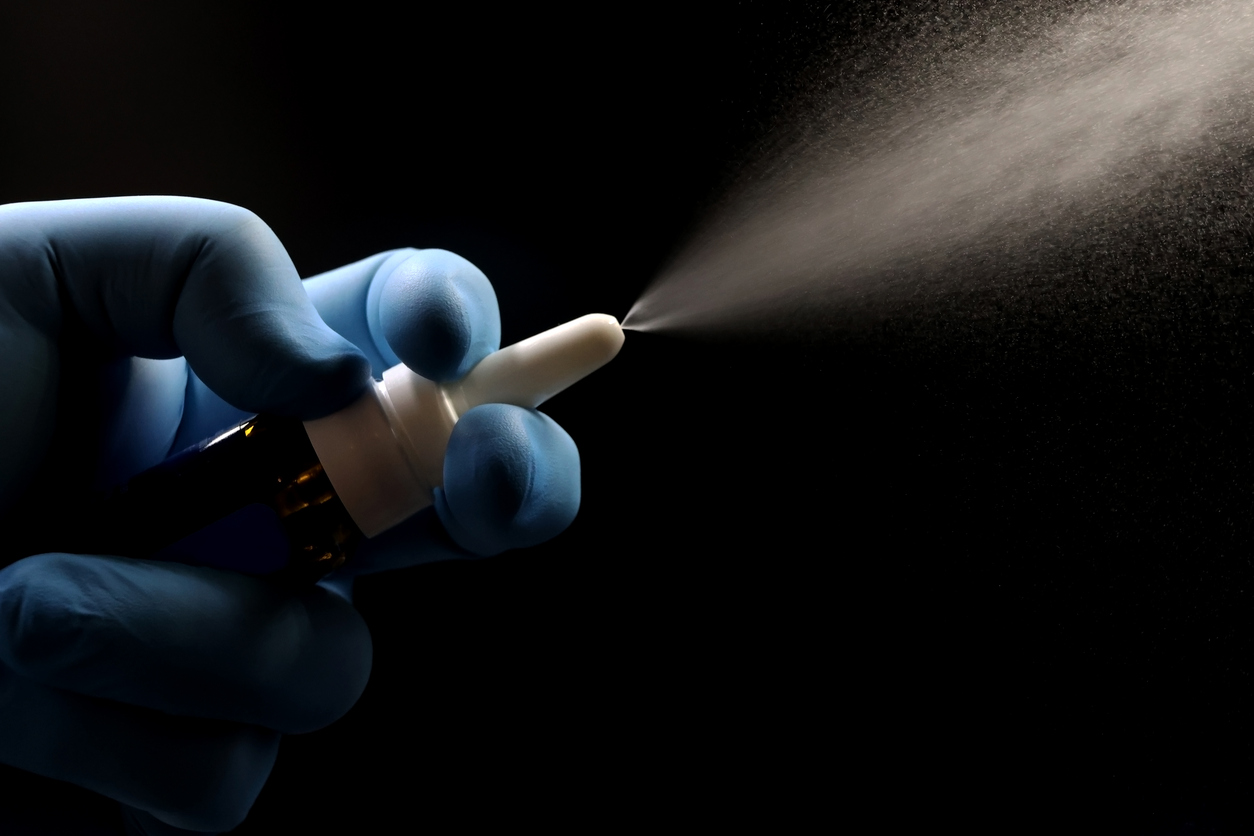I just returned from a dive trip to the Dominican Republic and wanted to share some reflections with you.
I dove at Bayahibe, a beach resort near La Romana on the southern (Caribbean) coast of the DR, about a two-hour ride from Santo Domingo airport.
Until this recent trip, I never had the opportunity to consolidate my dive skills. I was certified way back in 1991 with dives off the coast of Long Island, and then only sporadically dived a few times in Aruba while lecturing there, and then again exploring underwater caves in Mexico.
So after a quick review course in the pool with the expert instructors of Dressler Divers to reacquaint me with the equipment and emergency procedures, I was ready for some real dives to explore the coral reefs.
I fully expected—perhaps a little stereotypically—that the training and supervision were going to be a little sketchy, DR being a “Third World” country with less rigorous regulations. But I was pleasantly surprised by the comprehensiveness of the dive instruction from Dressler. They have a great staff of dedicated instructors and guides consisting of kids from all over the world who come to tropical venues to experience the local culture and dive. My family members with no previous experience took a crash course and were diving off the boat with rest of us after a few days of training in the pool.
Once you’re down there, it’s a magnificent experience. You glide weightlessly over a landscape of neon-colored coral with phantasmagorical shapes. Small fish with bright markings dart around you, making you feel like you’re inside a giant salt-water aquarium. You’re on constant lookout for sea tortoises, slithering eels, sea slugs, stingrays, shrimp and lobsters.
On a couple of dives, we inspected wrecks. One was of a small cargo boat, rusted and festooned with coral, and a nursery for all kinds of fish. Another was of a sunken galleon, with cannon barrels and cannon balls strewn over the bottom. Curiously, an underwater plaque marked the spot where the ship had foundered in a hurricane in the 1700s.
So, this is the weird thing, and it’s kind of Zen: You’re in circumstances which can be dangerous or even deadly, underwater at 40 to 100 feet. Your air supply is your only tenuous link to survival. It’s unnatural to deliberately breathe in while you’re underwater, but you get used to it. But the essence of diving, unlike most forms of exercise, is to minimizeexertion. If you swim vigorously and thrash around, you’ll quickly deplete your air tank, and your bottom time will be limited.
So, as soon as you enter the water, you deliberately—and somewhat paradoxically—try to relax, modulate your breathing, and swim gently with minimal effort. You tuck your arms in to reduce unnecessary flailing and navigate with just gentle little kicks of your swim fins and subtle turns of your body. You watch your bubble stream and become attuned to your breath sounds to monitor your air consumption. It’s like yoga!
But diving is not for everyone. I feel extraordinarily privileged at 66 to have the physical and mental wherewithal to continue doing it (an elderly—but spry—Brit just established the record for oldest diver at 95).
Here are some of the constraints:
Mental/Emotional: Diving requires a certain degree of intrepidness. If the idea of jumping off a boat and descending into the deep gives you intimations of panic, maybe it’s not for you, although facing your fears and overcoming them can be very empowering. Consider starting with snorkeling near the surface to get a gentle entreé to underwater exploration.
Swim competence: You don’t have to be a champion swimmer to scuba dive; actually the swimming is very gentle. But you do have to feel comfortable in the water.
General conditioning: If you suffer a heart or respiratory condition or are very poorly conditioned, the exertion of diving—albeit short and intermittent—might pose some risks for you. Likewise, if you’re a smoker, deep submersion may be a crapshoot. To paraphrase a common meme: “Ask your doctor if you’re healthy enough . . . for diving.” Interestingly, being overweight, if you’re otherwise fit, is no bar to diving. Some of the best divers I’ve known are “chunky”. After all, whales, dolphins, seals and walruses aren’t exactly svelte!
Musculoskeletal: While you’re virtually weightless underwater, there are times during your dive when you’ll have to carry a heavy air tank, a weight belt and assorted gear and harnesses. If you’ve got a very bad back, neck, knees, hips or shoulders, this might put added strain on your frame. That being said, one of the divers that I saw in the DR had a prosthetic leg and did fine. Scuba programs exist for veterans who are amputees.
ENT: If you have severe problems with your sinuses, or can’t “pop” your ears in response to pressure changes, you could be in for some serious ear pain or facial pressure when you descend. I sometimes get a nose bleed when I surface after diving, which looks gory, but quickly resolves. It’s thought to be related to small fragile capillaries bursting due to pressure changes.
Vision: Since I depend on glasses to see, everything would be a blur to me without a custom prescription dive mask. Alternatively, you can use a standard dive mask over contacts, but they can pop out if your mask fills with water.
The “Bends”: Ascending too rapidly from deep depths can cause nitrogen bubbles to form in your blood vessels. At the relatively shallow reefs we dove to, this is not really such a problem. To obviate the bends, you ascend gradually to a “safety stop” and re-acclimate to the lower pressure for a few minutes before heading for the surface. Our dive guides figured all this out for us, but advanced divers use dive computers to calculate their maximal bottom times and ascent rates. Additionally, after a series of dives you’re supposed to take a day off before boarding the low-pressure cabin of a plane.
Want to learn scuba diving? It makes a great family vacation and gives you something to do on a tropical getaway besides eating, drinking exotic cocktails and tanning your hide in the sun. Once your kids or grandkids are 10, they are eligible to certify. Find dive courses here.








